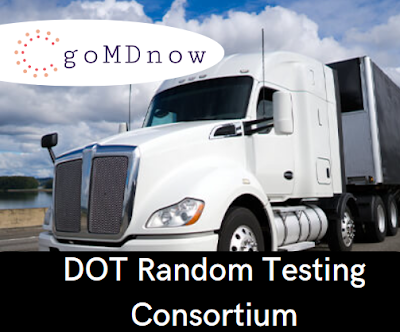What is a consortium?

Consortium: A consortium is a partnership of two or more organizations to establish their own official randomized drug testing programmed. To see if your organization is eligible, please contact our office. DOT Random Drug Testing Consortium: Our DOT Consortium offers random DOT drug and alcohol testing structures. The consortium acts as a "Third Party Administrator (TPA)" for members. Read on for more details about our DOT drug testing alliance services, or call us for information on joining the alliance. Example of a Drug Testing Consortium: A trucking company with only two or three drivers has a hard time implementing a successful random drug testing program. Instead, they can join a consortium where their drivers' names are merged with the names of other drivers from other companies. The random name generator then selects a driver from this pool. This more completely randomized their drug testing program. goMDnow to establish your commercial drug testing ...

.png)





